May 16, 2025 | 10:07 GMT +7
May 16, 2025 | 10:07 GMT +7
Hotline: 0913.378.918
May 16, 2025 | 10:07 GMT +7
Hotline: 0913.378.918
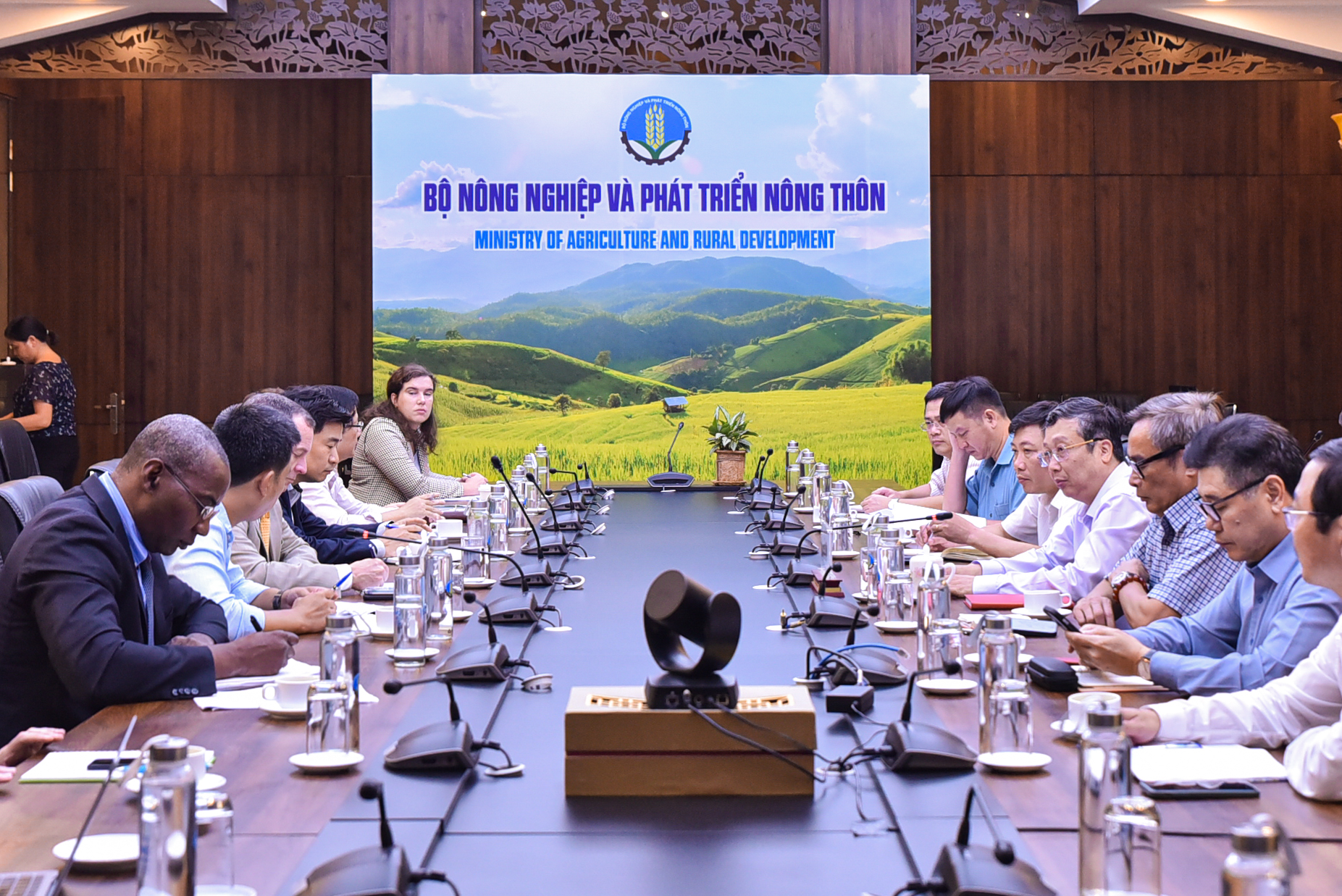
The meeting between MARD and the USDA on August 18. Photo: Quynh Chi.
On August 18, the Ministry of Agriculture and Rural Development (MARD) and the United States Department of Agriculture (USDA) meet to discuss the Fertilize Right initiative in Vietnam. The project is expected to be implemented in four years, between 2023 and 2027, with a total budget of about 4 million USD funded by the US Government.
The Fertilize Right initiative is part of the Global Fertilizer Challenge, sponsored by the US Government and coordinated by USDA. This is a commitment by the United States and European countries to help low- and middle-income countries address the global fertilizer shortages.
The Fertilize Right initiative, through which USDA will work with governments and local organizations worldwide, aims to advance fertilizer efficiency and nutrient management, starting with Brazil, Colombia, Pakistan and Vietnam.
Among these countries, Vietnam has the support of the International Rice Research Institute (IRRI) right from the preparation stage. IRRI has surveyed and exchanged with relevant partners to consult and develop relevant documents for the project.
In the past two weeks, the delegation of USDA and IRRI has worked directly with MARD departments; enterprises in the field of fertilizer industry; universities specializing in agriculture; farmers’ associations; local governments, cooperatives, and initiatives in Tien Giang and Can Tho.
Based on the surveys, results and consultation with partners in Vietnam, the US delegation proposes to focus on developing the rice and coffee industries in the Dong Thap Muoi area, Long Xuyen Quadrangle, Ca Mau peninsula, Dak Lak, and Thai Binh.
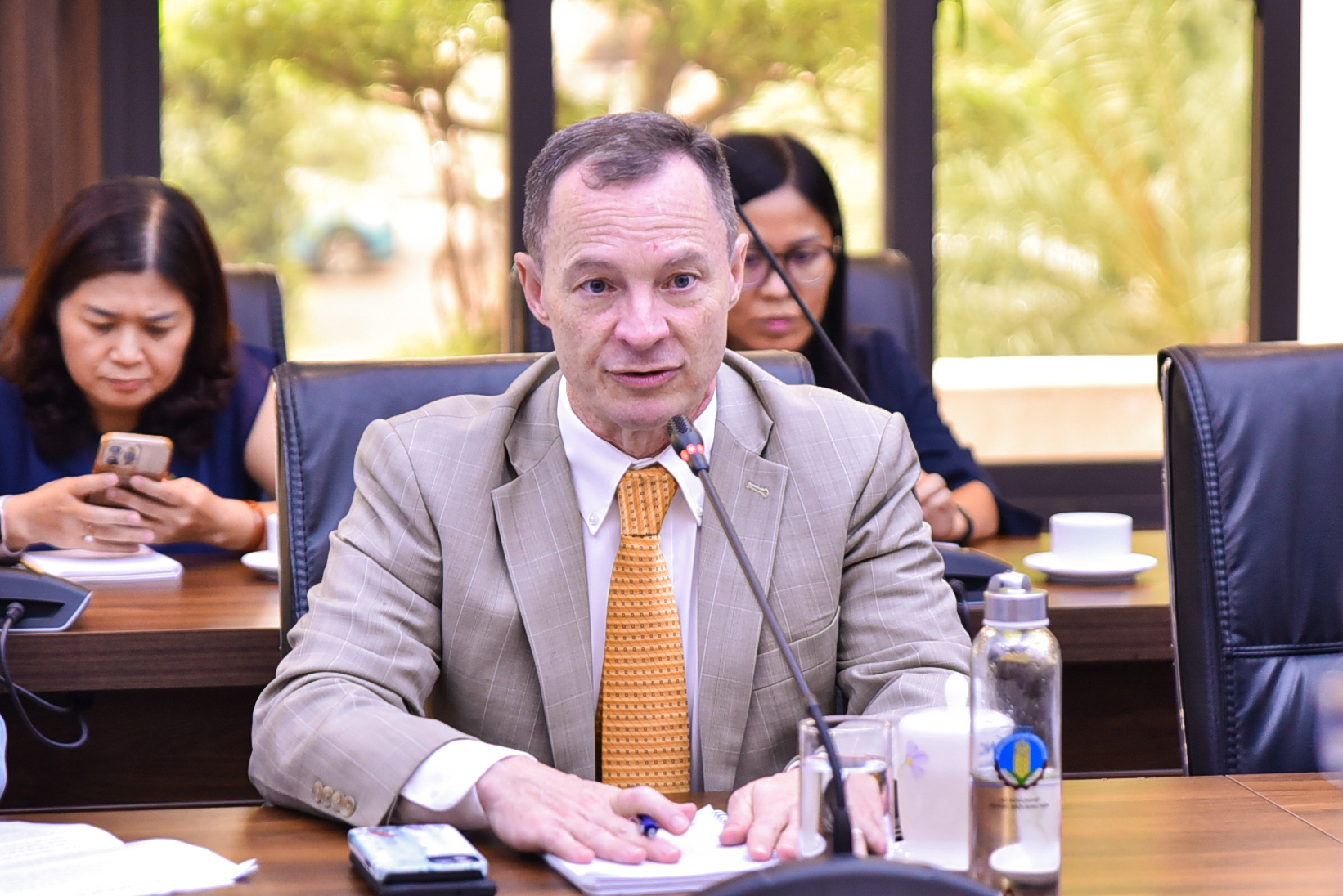
Agricultural Counselor Ralph Bean is committed to supporting MARD on establishing a public-private partnership on fertilizers. Photo: Quynh Chi.
Agricultural Counselor Ralph Bean, the US Embassy in Vietnam, considers MARD the focal point for effectively implementing the Fertilize Right initiative in Vietnam.
“I appreciate Vietnam’s pioneering in sustainable agricultural development, especially your efforts to realize the 1 million hectares of high-quality, low-emission rice project. We hope that the Fertilize Right initiative will help improve fertilizer use and efficiency and find alternative solutions to reduce greenhouse gas emissions, towards the global commitment at COP26”, the Agricultural Counselor says.
In addition, the US delegation and agricultural experts wish to accompany MARD and IRRI to complete a network of the private sector, scientific institutes, and management agencies at all levels, thereby ensuring positive outcomes. The Fertilize Right is a large-scale and complicated project. The process includes technology transfer to Vietnamese localities, data collection on soil nutrient and crop management, capacity building and training, and policy making, to name a few.
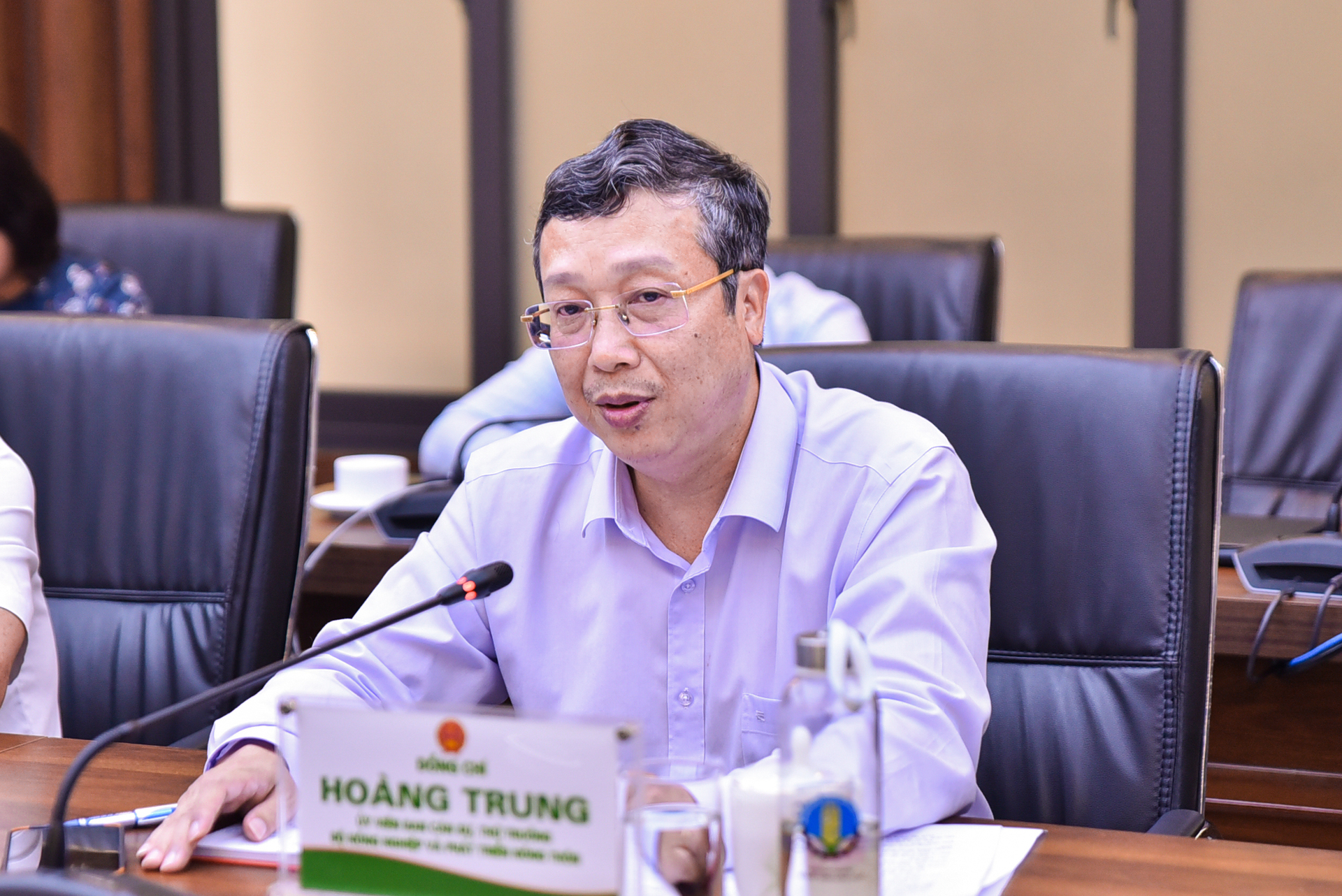
Deputy Minister Hoang Trung speaks at the meeting. Photo: Quynh Chi.
Deputy Minister Hoang Trung highly appreciates the professional, scientific and technical support from the US Government to create favorable conditions.
This support helps to increase the value of rice grains in the “golden time” of Vietnam’s rice industry. The MARD leader looks forward to coordinating with the US Embassy in Vietnam to clarify procedures, develop specific plans, and implement the project as soon as possible.
“We appreciate the project’s influence not only in Vietnam but also in many regions around the world. This action will fulfill the global commitment at COP 26 on sustainable agriculture and environmental protection. Vietnam’s crop industry hopes that the project will achieve its objectives, especially the type of fertilizer to replace traditional chemical fertilizer products,” the Deputy Minister states.
With on the guidance and support of the US leadership, MARD wishes to coordinate with IRRI and specify a plan quickly. MARD aims to put the project into operation no later than the winter-spring crop of 2023-2024.
In the future, the International Cooperation Department (MARD) will discuss with the US Agricultural Counselor to finalize relevant documents, and draft a Memorandum of Understanding on the Fertilize Right initiative in Vietnam. The department will help establish a network of institutes, universities and NGOs to support the project fully.
The Right Fertilizer initiative aims to reduce greenhouse gas emissions by increasing yields, fertilizer efficiency, developing alternatives to chemical fertilizers, and improving health and fertility of land.
The basis of this Project is the concept of “4R’s” in nutrient management, certified by experts in the fertilizer industry as well as by the US Department of Agriculture. “4R’s” stands for right source, right rate, right time, and right place and serve to guide farmers to the management practices that help keep nutrients on and in the field. Implementation of the 4R’s helps to align the economic, environmental, and social components of nutrient management.
Translated by Quynh Chi

(VAN) Veterinary training should focus on quality, not just quantity. Veterinarians also need more options to pursue specialized training.

(VAN) The veterinary industry needs to be viewed objectively and further invested in to properly demonstrate its role and importance in the new context.

(VAN) The number of veterinarians graduating each year is not enough to meet actual needs, hence a difficult problem for the growing livestock industry.

(VAN) The strategic partnership between Cambodia, the Philippines, Vietnam, and CGIAR ensures that innovative solutions effectively address national priorities for food system development.

(VAN) This was affirmed by the UK Minister of State at the Department for Environment, Food and Rural Affairs during a working session with Deputy Minister Tran Thanh Nam on May 13.
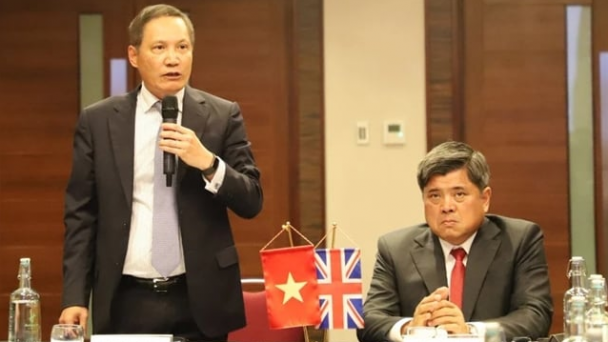
(VAN) On May 13, the Ministry of Agriculture and Environment, in coordination with the Embassy of Vietnam in the United Kingdom, organized a seminar titled 'Connecting trade in Vietnam-UK agricultural, forestry, and fishery products'.
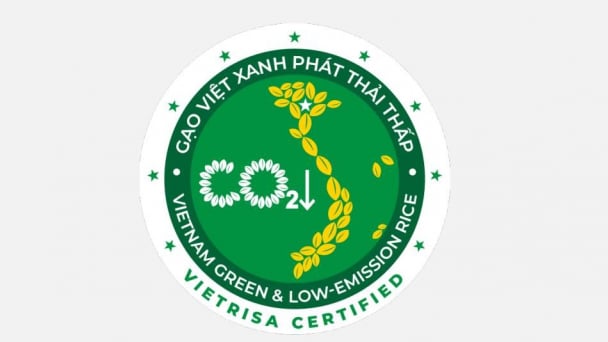
(VAN) The launch of the Vietnam green and low-emission rice brand is a positive signal for both businesses and farmers, marking readiness to reach new heights in the global market.